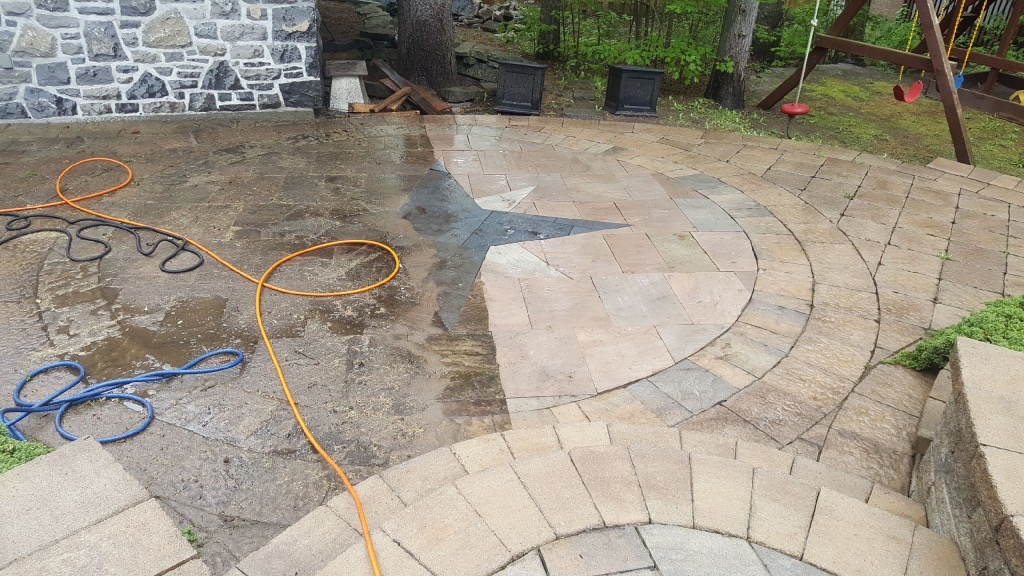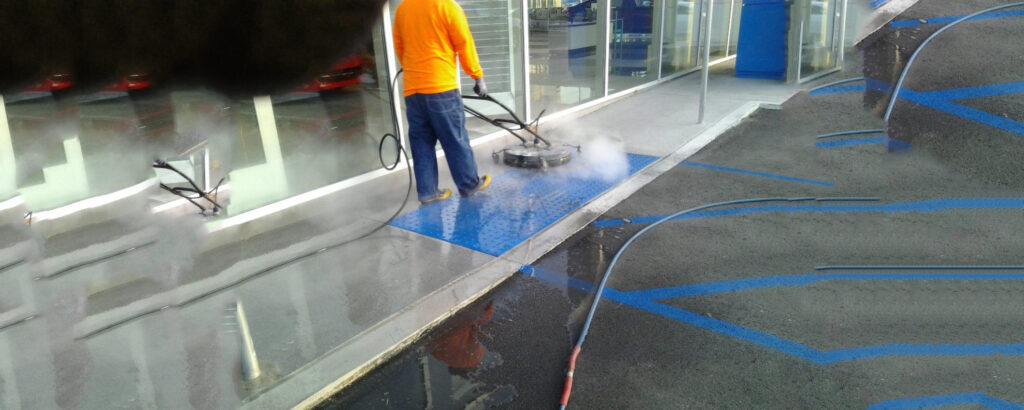The Pros and Cons of Power Washing Vs Pressure Washing
If you’re a homeowner seeking to enhance the curb appeal of your property or a marketer embarking on a commercial cleaning venture, the distinction between power washing vs pressure washing is paramount. Regardless of your experience level in the realm of exterior cleaning, understanding the nuances between these two services is crucial for achieving optimal results. By comprehensively evaluating the pros and cons of each approach, you can make a well-informed decision tailored to your specific needs and objectives. In this blog post, we’ll delve into the key differentiators between pressure washing and power washing, equipping you with the knowledge to select the most suitable method for your upcoming project.
Pressure washing and power washing are often used interchangeably, but they entail distinct processes and outcomes. At their core, both techniques involve utilizing high-pressure water streams to cleanse surfaces, but the primary difference lies in the addition of heat to the water in power washing. Power washers feature a heating element that elevates the water temperature, enhancing its cleaning power and efficacy.
One of the primary advantages of power washing is its ability to tackle tough stains and grime more effectively than conventional pressure washing. The heat generated by power washing can break down stubborn deposits, grease, and contaminants with greater efficiency, resulting in a more thorough and expedited cleaning process. Additionally, the heated water can penetrate porous surfaces more deeply, ensuring a more comprehensive clean compared to cold-water pressure washing.
However, it’s important to consider the potential drawbacks of power washing, particularly in certain applications. The elevated temperature of the water may not be suitable for delicate surfaces or materials prone to heat damage. Additionally, power washing equipment tends to be bulkier and more complex than standard pressure washing systems, requiring careful handling and maintenance to avoid malfunctions or accidents.

On the other hand, pressure washing offers versatility and accessibility for a wide range of cleaning tasks. By harnessing the power of high-pressure water streams alone, pressure washing can effectively remove dirt, grime, mold, and mildew from various surfaces without the need for heat. This makes pressure washing a more practical option for delicate materials or areas where heat sensitivity is a concern.
Moreover, pressure washing equipment is typically more lightweight and user-friendly compared to power washers, making it ideal for DIY enthusiasts and homeowners. With proper training and safety precautions, individuals can effectively utilize pressure washers to clean driveways, sidewalks, decks, siding, and other exterior surfaces with ease.
Despite its versatility, pressure washing may have limitations in certain scenarios, particularly when dealing with stubborn stains or heavily soiled surfaces. In such cases, the added cleaning power of heated water provided by power washing may be necessary to achieve optimal results.
Overview of Pressure Washing vs Power Washing:
Understanding the distinction between pressure washing and power washing is crucial when it comes to selecting the most suitable method for your cleaning needs. Though these terms are often used interchangeably, they entail different approaches to cleaning surfaces. Pressure washing employs cold water under high pressure to remove dirt, grime, and stains from various surfaces with immense force. On the other hand, power washing encompasses the use of heated water in conjunction with high pressure to effectively break down and eliminate contaminants like mold, mildew, grease, and even chewing gum.
Benefits of Pressure Washing:
Pressure washing has emerged as an efficient and time-saving method of cleaning various surfaces, offering a myriad of benefits to both residential and commercial property owners. Its power lies in the ability to effectively remove stubborn dirt, grime, mold, algae, and other contaminants that traditional cleaning techniques may struggle to address. This modern solution not only restores the original appearance of surfaces, but it also helps in maintaining the structural integrity and longevity of the material beneath.
Drawbacks of Pressure Washing:
While pressure washing has gained immense popularity for its efficiency and effectiveness in cleaning surfaces, it is important to acknowledge the potential drawbacks associated with this technique. When performed without proper knowledge or experience, pressure washing can cause extensive damage to delicate surfaces, such as wood, shingles, and intricate carvings. Additionally, the high water pressure can lead to the inadvertent removal of protective coatings and sealants that shield surfaces from environmental factors. Another notable concern is the risk of injury, as the powerful water stream possesses enough force to cause lacerations or even blindness if it comes in direct contact with skin or eyes.
Advantages of Power Washing:
In today’s fast-paced world, maintaining a clean and visually appealing environment can be pivotal in showcasing professionalism and leaving a lasting impression. Professional power washing proves to be an advantageous solution for businesses and homeowners alike in fulfilling this need. This powerful cleaning method not only expedites the process of removing dirt, grime, and stains but also contributes to the overall health and longevity of various surfaces. Deadlines and schedules can easily be met as power washing eradicates the need for tedious manual scrubbing.

Disadvantages of Power Washing:
In assessing the efficacy of cleaning methods, it is essential to weigh the advantages and disadvantages of each approach. While power washing can be highly effective in removing dirt and grime, it is not without its drawbacks. One significant disadvantage of power washing is the potential for causing unintended damage to surfaces, such as chipping paint or dislodging bricks and mortar, leading to costly repairs. Furthermore, the forceful stream of water can drive contaminants, like mold spores and bacteria, deeper into porous surfaces, exacerbating existing issues rather than resolving them.
Which Is Right for Your Home or Business Needs – Pressure vs Power Washing:
When it comes to maintaining the cleanliness and appearance of your home or business, choosing the right method to remove dirt, grime, and unwanted buildup is crucial. Understanding the distinction between pressure washing and power washing is essential to make an informed decision for your specific needs. Pressure washing utilizes cold water under high pressure, making it ideal for cleaning various surfaces such as concrete, brick, and stone without causing damage. On the other hand, power washing involves the use of hot water, which can be more effective in removing stubborn stains and killing mold, mildew, and algae.
Pressure and power washing are two of the most effective methods of providing a deep, thorough clean on many surfaces. Whether you need to clean your driveway or the exterior of your business, both pressure and power washing provide reliable results if performed by a trained professional. However, it is important to analyze the specific needs of your property to assess which method will yield the desired outcome. Power washing is ideal for more robust jobs while pressure washing is better suited for softer substrates like vinyl siding.
https://www.google.com/maps?cid=7120898879908711685
532 Montréal Rd Suite 255, Ottawa, ON K1K 4R4, Canada
613-691-1400
https://performancewindowcleaning.com/

